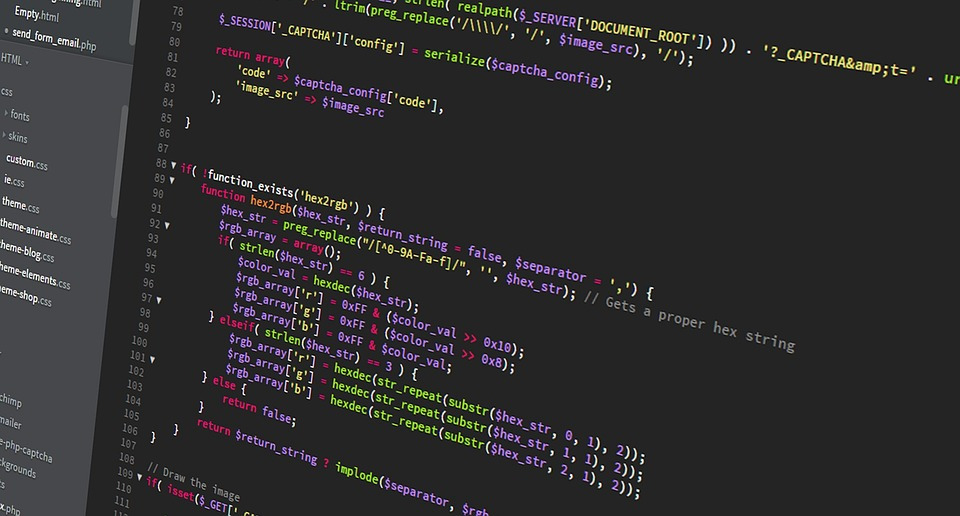Businesses can only thrive with a database related to customers, products, websites, processes, and audits. So, they always need database developers who efficiently collect, store, build and operate databases.
This article helps you dig into the advantages and disadvantages of being a database developer and gives tips for mastering related skills. Keep reading to see these job natures!
What Does a Database Developer Do?
Database developers will handle data design based on programming languages. They often modify and update the information found on the user’s needs.
These people must also ensure that their software is easy to access and search for client-required results. They will also have to work with network experts to protect user data from hackers.
They can work as administrators to set up and handle input information. After a long time, database developers can direct their careers to become big data engineers, data warehouse analysts, or chief officers.
There are many unique benefits to being a data developer, but at the same time, you need to accept the same risks. Keep reading below to know its job nature best and make your decision.
First of all, the job’s upsides are ideal for motivating you to pursue this path. Not only does this provide a comfortable life, but this job also offers many chances for you to enhance yourself and your career.
1. Learning Time

Like many other jobs, you will only need to study briefly to become a data developer. Some employers only require you to have a college degree, while a few large companies require extra related degrees.
It would help if you started with a university that offers data training, or you can opt for online courses from skillful instructors. After a few years, you’ll quickly land your dream job with these backgrounds.
2. High Income
The income that employees in the IT industry receive is always higher than many other professions. It becomes what makes this job attractive to laborers. For details, data developers earn about $90,000 a year.
Accordingly, your income will be proportional to the work experience you have. The fresher and intern will only increase after you have mastered the job skills. Industry-leading experts can receive up to over $100,000 per year.
3. High Creative Potential
Creativity is a requirement that many tech jobs offer, including data developers. You have a chance to make the software more flexible for your clients with code.
4. Freelance Chance

Since database developers only need to work with computers, you can develop your career as a freelancer. Then you will sign project contracts with partner companies and only accept jobs you love.
Freelance opportunities allow you to work wherever you feel comfortable. Instead of following rules, you arrange your schedule according to the best ones.
5. Various Workspaces
Your working space is flexible, as you can work anywhere with your computer.
Sometimes you must work alone, but communicating with your colleagues and related departments is vital to increase work efficiency.
6. Chance for Innovation
Data-related knowledge is changing, enabling database developers to create and upgrade their products. As a developer, you will train your thinking and grasp trends, innovating your skills to develop the best software.
7. Career Growth
According to BLS, based on current data, jobs will likely grow by up to 9% per year between 2020 and 2030. In addition, many fields need to build an information base, opening up job chances for students after graduation.
Contrary to the above upsides, data experts also have many downsides you need to overcome to succeed. I will point out the most prominent issues below:
8. Require Coding Knowledge
This career is only for you if you know how to use a primary language. Some examples you need to master are C++, Java, or JavaScript, but many experts agree that SQL is the ideal language for the job.
You’ll have to take courses on the basics and use these languages to create software and data before you land your dream job.
9. Include Long Hours

You will have to work for a long time in front of the computer screen for a day. While you finish a project urgently, you may have to accept overtime. Working conditions for long hours can cause health issues, such as stress or vision loss.
10. Involve a High-Pressure Workspace
While the 4th industrial revolution is booming, different fields are changing rapidly. And data science is also making the fastest progress, requiring database experts to update their knowledge.
You will be pressured to keep up with trends, multi-task, and race against time to meet deadlines. The high-pressure working space has made many people feel stuffy and tired.
11. Require Teamwork
Effective communication and teamwork skills are what you must have to bring the best results. It would help if you connected well with other team members and related departments to make your software perfect for users.
12. Have to Meet Best Practice Guidelines
When working as a database expert, you must make positive changes to become suitable for the nature of the job and the working environment. The need for inclusion and constant innovation can be daunting for many people.
How to Become a Database Developer?
Becoming a data developer is relatively easy, but you must work hard and always give your best. Most employers will require you to have a degree related to programming, computer science, or data science. You will earn these degrees through education at famous colleges around the world.
To improve your skills and expertise, you should also take part in extra courses. Your CV has a better impression on HRs when you list more related degrees.
When you have just graduated from college, you should do an internship to gain experience or apply for a job as a database expert. You can progress to higher roles after mastering the basics and dealing with real-life cases.
Seasoned data programmers can become data managers, data warehouse analysts, or experts with desirable income.
Conclusion
Becoming a data developer is a challenging path. You need good knowledge, degrees, and valuable soft skills.
Be brave to face the difficulties with this job, and the benefits it brings will surely make you satisfied! Thank you for reading!
